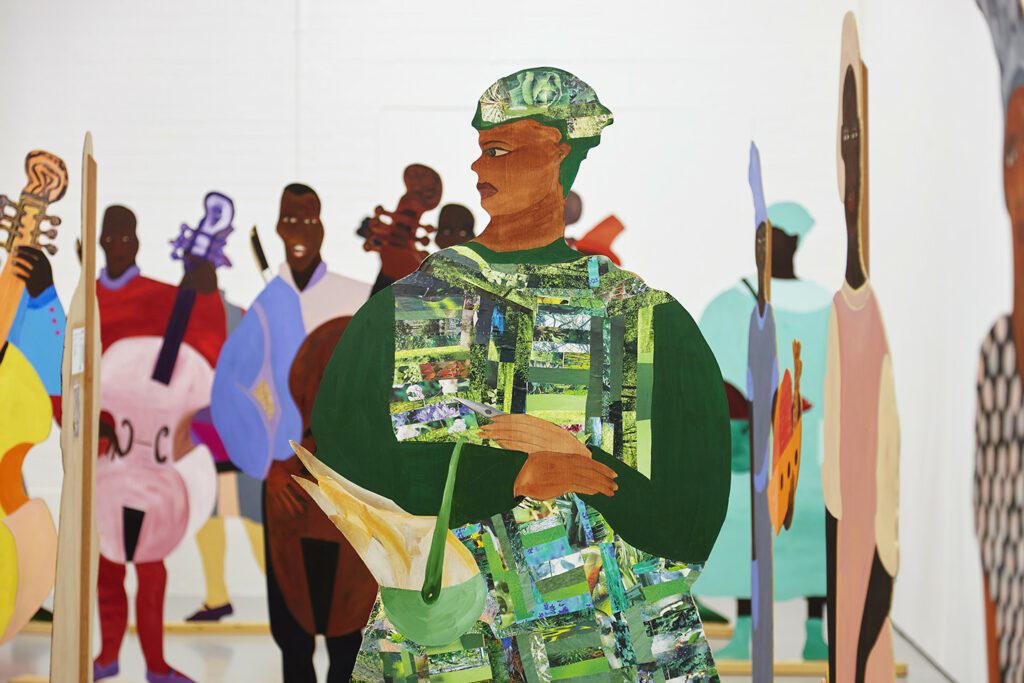CAPC Contemporary Art Museum Bordeaux, Bordeaux, France
31 Oct 2019 - 23 Feb 2020

Lubaina Himid, Naming the Money, 2004. View of the exhibition Navigation Charts, Spike Island, Bristol, 2017. Courtesy of the artist, Hollybush Gardens and the National Museums Liverpool: International Slavery Museum. Photo: Stuart Whipps.
CAPC’s 2019 programme concludes with an exhibition by the 2017 Turner Prize winner Lubaina Himid centred on the presentation in the nave of her seminal installation Naming the Money (2004).
A figurehead of the Black Arts movement in 1980s Britain, Himid has been developing a multi-facetted oeuvre across four decades in which she combines art-making, curating, archiving and teaching to explore the marginalisation of the black diaspora in contemporary society.
By removing the protagonists of Naming the Money from contexts in which they were instrumentalised as signifiers of their masters’ wealth and social status, Himid gives them back a body and a name, thus restoring their agency for collective action. In the installation, these slaves, who were employed in European courts as ceramists, herbalists, toy makers or dog trainers, are heard speaking about their changing identities as they were forced to shed their African names and occupations in favour of the new roles imposed on them. Naming the Money, which has recently been donated by the artist to the International Slavery Museum in Liverpool, extends the experience of slavery to all ‘migrants’ whose personal identities are deconstructed and reconstructed under pressure from global political and economic forces.
Occupying the centre of the nave, the installation also calls to mind the initial purpose of the warehouse that has been housing the CAPC since the 1970s. Built in 1824, nearly ten years after the official abolition of the slave trade, it was used to store colonial goods (coffee, sugar, cocoa, cotton, rum, wine, cod, spices, etc.) in transit to Northern Europe, sustaining the city’s maritime trade for more than a century.
As a counterpoint to this colourful crowd with which viewers are encouraged to mingle, Himid is showing nine diptych paintings with abstract geometric patterns. Inspired by real or inner journeys to her native island, the series of paintings entitled Zanzibar is suggestive rather than illustrative, its deafening silence forming a stark contrast to Naming the Money.
Curator: Alice Motard
With the support of Fluxus Art Projects
.